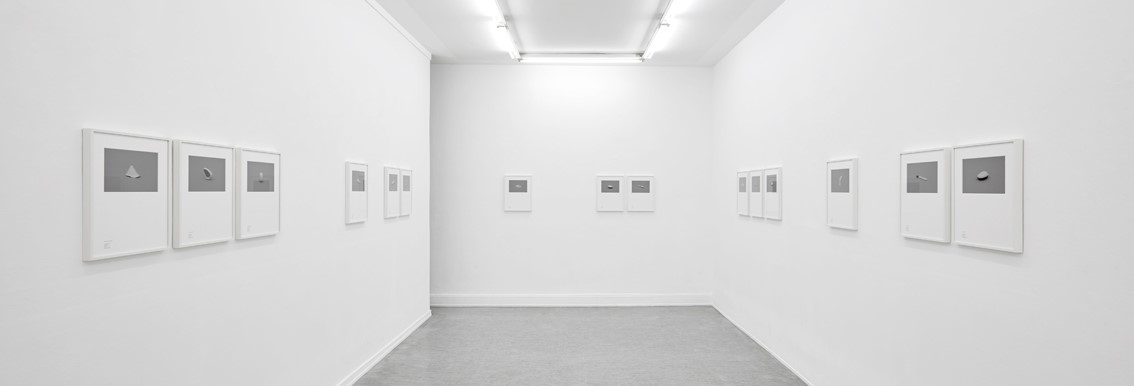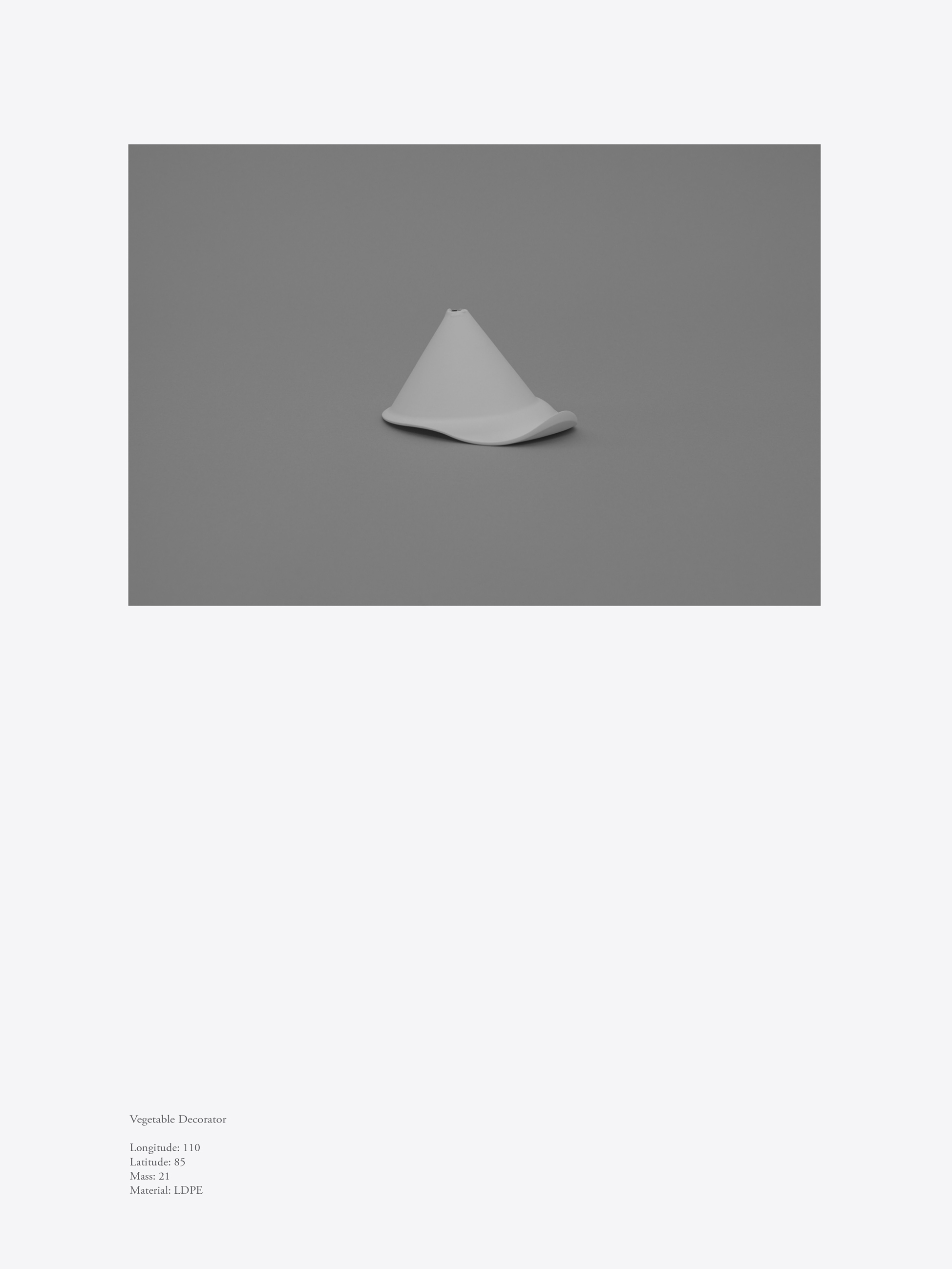| Julian
Faulhaber Prototypes Pressetext / Press Release - Prototypes Prototypes - alle Arbeiten / all works Prototypes in der FAZ Julian Faulhaber Prototypes „Wir sind in eine Welt der Zeichen eingetreten, und wir benutzen sehr oft Objekte nicht mehr als Gebrauchsgegenstände, sondern als Zeichenträger. Die Dinge werden nicht mehr entworfen. Der Entwurf wird ihnen im Nachhinein übergestülpt. Als Design, als Erscheinungsform, als Symbol. Die Dinge haben keinen Zweck mehr zu erfüllen, sie sind Produktion, die wir zu konsumieren haben. Also existieren sie aus ihrer aufgelegten Bedeutung, sie haben Symbolwert.“ * In seiner aktuellen Arbeit „Prototypes“ gibt Julian Faulhaber erneut seiner Faszination für das Material LDPE Raum. Seine Fotografien versammeln Gegenstände aus unserer alltäglichen Lebensumwelt, die aus Polyethylen bestehen. Faulhaber stellt sie frontal oder leicht in die Tiefe gedreht vor Augen, in der jeweils gleichen Bildgröße bei durchaus verschieden großen Gegenständen. Über den tatsächlichen Maßstab gibt die Legende, die jeder der Tafeln beigegeben ist, nur unzureichend Aufschluss: dort werden neben der Bezeichnung des Gegenstandes seine Ausmaße und sein Gewicht angegeben – allerdings ohne Maßeinheiten wie Zentimeter oder Gramm. Faulhaber untersucht überwiegend weiße Gegenstände mit der Schwarzweißfotografie. Fast könnte man dabei an eine forschende Unternehmung denken. Aber hier wird eine wissenschaftliche Aufarbeitung von Gegenstand und Beschreibung lediglich zitiert, denn Faulhaber geht es um die Funktion von Bildern im Modus des Beschreibens. Den Gegenständen im Bildraum immer den gleichen Stellenwert zuzumessen, heißt, sie nur untereinander vergleichbar zu machen. Eine Vergleichbarkeit der Bildwelt mit irgendetwas außerhalb ihrer selbst wird so negiert. Faulhabers Kamera entrückt die Gegenstände in eine eigene Sphäre, gibt ihnen Gleichwertigkeit, Raum und Ausdehnung, lässt ihnen Gestalt und Form. So rückt in den Blick, wie Kunststoffe unsere Welt verändert haben – sie haben ihr künstliche Gegenstände und Anmutungen hinzugefügt, skulpturale Einheiten, die für sich attraktiv sind, in der Versammlung bei Faulhaber aber als eine imaginierte Dokumentation auftreten. Die Darstellung denunziert sich selbst, verrät jede Objektivität und stellt uns nur vor neue Rätsel. Die scheinbare Forschung an den Gegenständen erweist sich vielmehr als Abhandlung über das Wesen der Fotografie zwischen Konstruktion und Repräsentation. Julian Faulhaber nutzt seine fotografische Arbeit, um Essentielles zu behandeln. Dabei sind die Ergebnisse auf überraschende Weise ästhetisch faszinierend und dies in einem jeweils dem Thema entlehnten und zugleich angepassten Gewand. In früheren Arbeiten hat sich Faulhaber mit der Essenz von Räumen, mit der von Farben und in seiner Serie „Catalogue“ mit der Essenz der Zeit befasst. Die vorliegende Serie schließlich adressiert die Essenz der Dinge im Verhältnis zu ihrem Bild: „Prototypes“. Peter Schmieder *Aicher, Otl: The World as Design. Ernst & Sohn, Berlin 1991. All images © Julian Faulhaber/ VG Bildkunst Bonn. The project is supported by Stiftung Kunstfonds Bonn. Julian Faulhaber Prototypes “We have entered into a world of symbols, and it is common for us to no longer use objects as practical tools but as vehicles of symbols. Objects are no longer conceived. A concept is imposed on them retrospectively: as a design, as an outward form, as a symbol. Objects no longer serve any purpose; they are products for us to consume. And so they exist from the meaning they display – they have symbolic value.” * In his latest work, “Prototypes,” Julian Faulhaber once again gives space to his fascination for the material LDPE. His photographs gather objects from our everyday life environment which are made of polyethylene. Faulhaber pictures the objects frontally or slightly turned into depth, each with the same image size, even though their actual dimensions are quite different. The captions accompanying each panel provide only insufficient information about the scales: In addition to the name of the object, its dimensions and weight are indicated – but without actual units such as centimeters or grams. Faulhaber mainly explores white objects, with black-and-white photography. You could almost think of a research project here. But a scientific review and description of the object is only invoked, as Faulhaber is after the function of images in the way of describing them. To place the same value on each object in the pictorial space is to make them only comparable to each other; a comparability of the world of art with anything lying outside of it is thus negated. Faulhaber’s camera releases the objects into a sphere of their own, giving them equivalence, space and expansion while keeping their shape and form. This is how plastics have changed our world – they have added artificial objects and appearances, sculptural units that are attractive to themselves, but in Faulhaber’s assembly appear as an imagined documentation. The presentation denounces itself, betrays every objectivity and only presents us with new puzzles. Ultimately, the seeming research of the objects proves to be a treatise on the nature of photography between construction and representation. Julian Faulhaber uses his photographic work to deal with something essential. At the same time, the results are aesthetically fascinating in a surprising way, and in a way that is both inspired by and adapted to the subject. In previous work Faulhaber has approached the essence of space, colors and, in his “Catalogue” series, with the essence of time. Finally, the present series addresses the essence of things in relation to their image: Prototypes. Peter Schmieder (Translated by Simone Schede) *Aicher, Otl: Die Welt als Entwurf. Ernst & Sohn Verlag, Berlin 1991. alle Motive © Julian Faulhaber/ VG Bildkunst Bonn, Text © der Autor. Das Projekt wird von der Stiftung Kunstfonds Bonn unterstützt. |
 Julian Faulhaber, Prototypes, Exhibiton View  © Julian Faulhaber, VG Bildkunst Bonn |